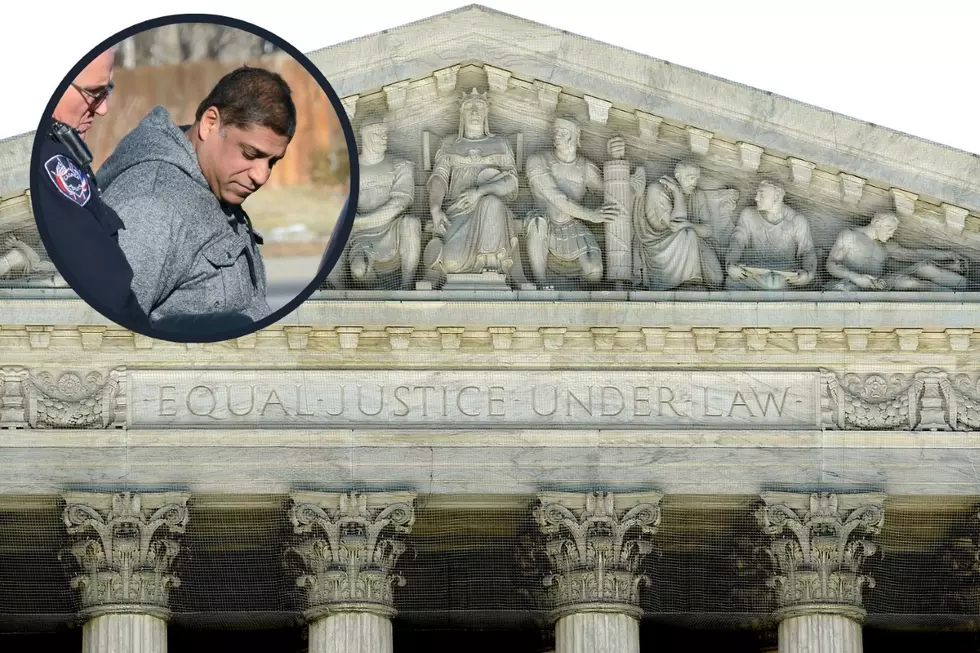
Re-Trial Set for Former Casper Doctor Charged With Prescription Drug Crimes
A former Casper doctor and his brother who were convicted of multiple crimes related to distribution of prescription pain relief drugs and had his conviction reversed, will face trial again in Wyoming U.S. District Court.
Shakeel Kahn and his brother Nabeel Khan (that's how they spell their names) are scheduled for their six-week retrial on Nov. 6, according to federal court documents.
Shakeel Kahn, a pain management physician, was arrested in late November 2016 and he and his wife were initially charged with one count of conspiracy to distribute oxycodone. More charges were added. Shakeel Kahn and Nabeel Khan were found guilty of numerous crimes in a trial in Casper in May 2019. They were sentenced in August 2019.
Nabeel received a 15-year, one-month sentence for conspiracy to distribute oxycodone and other drugs, plus a consecutive five-year sentence for possessing a firearm during a drug-trafficking crime.
Shakeel received a 25-year-sentence for drug distribution resulting in death, plus a consecutive five-year sentence for possessing a firearm during a drug-trafficking crime. The Wyoming U.S. Attorney had asked for a life sentence.
Through a series of appeals, the last of which was combined with the case of another doctor, Kahn had his case overturned.
The court dealt with the question of when or if doctors legitimately prescribing painkillers such as oxycodone shifted at some point to their supporting addiction, and when or if they knew that.
Read More: Supreme Court rules in favor of former Casper Doctor | https://k2radio.com/u-s-supreme-court-rules-in-favor-of-former-casper-dr-shakeel-kahn-convicted-of-overprescribing-pain-meds/?utm_source=tsmclip&utm_medium=referral
In June 2022, the Supreme Court ruled in favor of Kahn, saying the government needed to prove that doctors accused of overprescribing medication intended to act -- the legal term being mens rea ---without authorization.
The federal law says "... it shall be unlawful for any person knowingly or intentionally -- " "to manufacture, distribute, or dispense ... a controlled substance...."
The Supreme Court then sent the case back to the 10th U.S. Circuit Court of Appeals, which ruled unanimously in February that the jury instructions used terms about whether Kahn acted "in good faith" are impermissible because they referred to the mental state of a "hypothetical 'reasonable' doctor, not on the mental state of the defendant
So the trial will return to Wyoming where it started.
Even though the only issue is about the jury instruction, the entire case must be re-tried, hence scheduling it for six weeks.
Monday, the attorneys for Shakeel Kahn and Nabeel Khan met with federal prosecutors and U.S. District Judge Alan Johnson for a status conference to resolve other pre-trial details.
Those matters include previous pre-trial rulings; discovery procedures and deadlines; disclosures of evidence to each side; pre-trial filing deadlines including a joint status report and a possible plea agreement; proposed jury instructions, verdict forms and void dire questions; and witness and exhibit lists.
=========================
The verdict in May 2019 ended a three-year investigation after the Wyoming Board of Pharmacy had questions about Shakeel Kahn's apparent prescribing high amounts and doses of painkillers that seemed to be outside the usual standard of care.
Federal and state law enforcement agencies took over in the spring of 2016.
Prosecutors filed an initial criminal complaint against defendant Paul Beland in November 2016.
The crimes from January 2011 through November 2016 comprised the heart of the first count of the 23-count indictment with the Kahn brothers and three other co-conspirators -- Shakeel's wife Lyn, Shawnna Thacker and Beland.
Those three co-conspirators pleaded guilty to this and other charges in exchange for testifying for the prosecution and reduced sentences.
Included in the conspiracy count for Shakeel Kahn and Nabeel Khan was the charge that their distribution of those drugs resulted in the death of Arizona resident Jessica Burch in 2015.
The other crime with the stiffest penalty facing Shakeel Kahn was operating a continuing criminal enterprise, conviction of which was punishable by 20 years to life imprisonment.
The indictment also named five counts of dispensing oxycodone, three counts of possession with intent to distribute oxycodone and aid and abet, six counts of unlawful use of a communication facility, three counts of dispensing oxycodone and aid and abet, and two counts of money laundering.
Horse Nations Indian Relay Race
Highland Park Community Church Hosts 'Night to Shine' Event for People with Special Needs
More From K2 Radio









